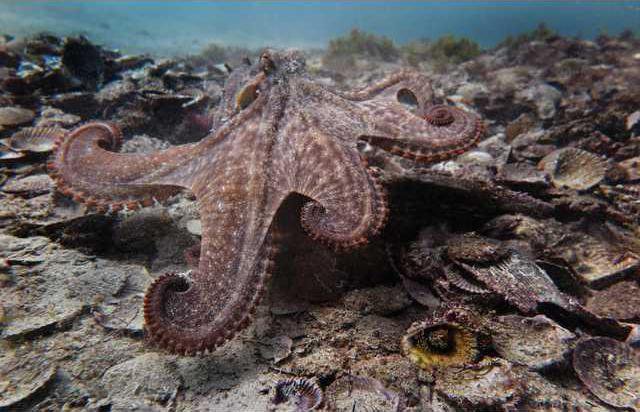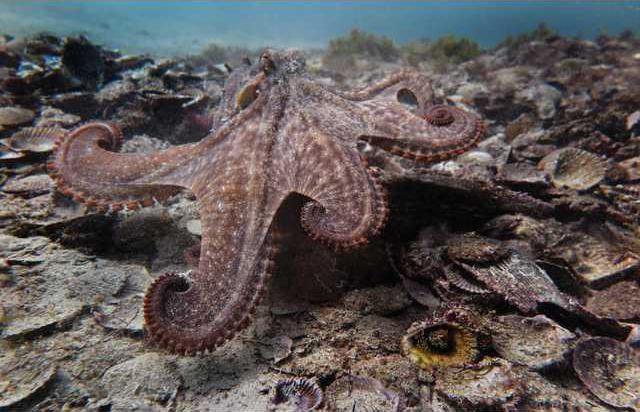A group of biologists just discovered an underwater city full of octopuses, and theyre calling it Octlanis.
Although it sounds like something out science fiction, its a reality.
The so-called city includes dens made out of piles of sand and shells, and is home to up to 15 of the cephalopods, the biologists told Science Alert.
The group recorded 10 hours of footage, giving them some information about how the perceived gloomy attitudes of octopuses may not be true for all of the species.
The scientists said that the creatures are perhaps not the isolated and solitary creatures we thought they were, according to Science Alert.
David Scheel, of Alaska Pacific University, and his team documented the social behaviors in a study published in the academic journal Marine and Freshwater Behavior and Physiology.
Scheel said he was surprised to find octopuses embrace social norms.
These behaviors are the product of natural selection, and may be remarkably similar to vertebrate complex social behavior, he told Quartz. This suggests that when the right conditions occur, evolution may produce very similar outcomes in diverse groups of organisms.
This isnt an isolated incident. In 2009, a separate octopus site was found, and researchers named it Octopolis. Two to 15 octopuses can be seen at that site at any given time, Quartz reported.
Scheel said in a statement that octopuses likely hang out in the den by themselves but will occasionally interact with other members of the species likely because of a generation-to-generation tradition.
Most commonly, the gloomy octopus seems to den by itself, Scheel wrote in the study.For these complex behaviors to occur, I think that they must encounter one another and interact regularly over generations, even if at any time there are more octopuses living a solitary life than interacting consistently throughout every day.
Although it sounds like something out science fiction, its a reality.
The so-called city includes dens made out of piles of sand and shells, and is home to up to 15 of the cephalopods, the biologists told Science Alert.
The group recorded 10 hours of footage, giving them some information about how the perceived gloomy attitudes of octopuses may not be true for all of the species.
The scientists said that the creatures are perhaps not the isolated and solitary creatures we thought they were, according to Science Alert.
David Scheel, of Alaska Pacific University, and his team documented the social behaviors in a study published in the academic journal Marine and Freshwater Behavior and Physiology.
Scheel said he was surprised to find octopuses embrace social norms.
These behaviors are the product of natural selection, and may be remarkably similar to vertebrate complex social behavior, he told Quartz. This suggests that when the right conditions occur, evolution may produce very similar outcomes in diverse groups of organisms.
This isnt an isolated incident. In 2009, a separate octopus site was found, and researchers named it Octopolis. Two to 15 octopuses can be seen at that site at any given time, Quartz reported.
Scheel said in a statement that octopuses likely hang out in the den by themselves but will occasionally interact with other members of the species likely because of a generation-to-generation tradition.
Most commonly, the gloomy octopus seems to den by itself, Scheel wrote in the study.For these complex behaviors to occur, I think that they must encounter one another and interact regularly over generations, even if at any time there are more octopuses living a solitary life than interacting consistently throughout every day.





